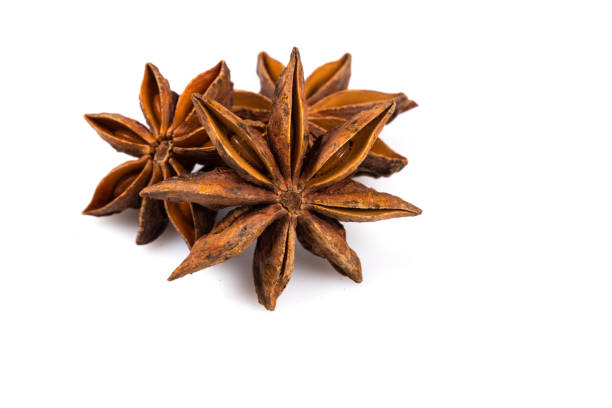 In traditional Chinese medicine, star anise is prescribed as a digestive aid, promoting health of female reproductive organs and for lactating mothers to increase breast milk secretion.
In traditional Chinese medicine, star anise is prescribed as a digestive aid, promoting health of female reproductive organs and for lactating mothers to increase breast milk secretion.
The anti-bacterial and anti-fungal properties of star anise are useful in the treatment of asthma, bronchitis and dry cough. It can also be used as for its sedating properties to ensure a good sleep. The oil of star anise is useful in providing relief from rheumatism and lower back pain. It can also be used as a natural breath freshener.
Shikimic acid, a compound present in star anise, is used for preparing drugs for curing influenza or the flu virus. Linalool, another compound, contains antioxidant properties that are very good for one's overall health. Anethole is what gives it the licorice flavor and this substance can prevent the growth of E. Coli and staph. It has anti-inflammatory properties, is an anti-oxidant and will kill fungus.
Historically, the oil has been applied topically to treat mild forms of acne. In addition, star anise oil is toxic to many insects, and has been used to treat scabies and lice infections. Although star anise may help treat certain skin condition, never apply pure star anise oil to your skin because it may cause a severe irritation. The oil should always be diluted with a carrier oil to decrease your risk of irritation.
Star anise is useful for skin conditions, to reduce stress related fatigue and to improve a woman’s wellbeing. Research dictates that star anise is effective against several types of viruses including the herpes virus. It works by preventing further viral replication.
Star Anise can be used to ease the symptoms of menopause, especially hot flashes. It is good for Post Traumatic Stress Syndrome as it softens memories and makes them easier to deal with. Star Anise can be rubbed onto the soles of the feet, breathed, or rubbed with a carrier oil onto the chest, front and back, to prevent or relieve flu symptoms. It also helps with chronic pain, cough, urinary and respiratory infections. It is very different from traditional anise in appearance, although the smell and taste is very similar; warm and licorice-like.
